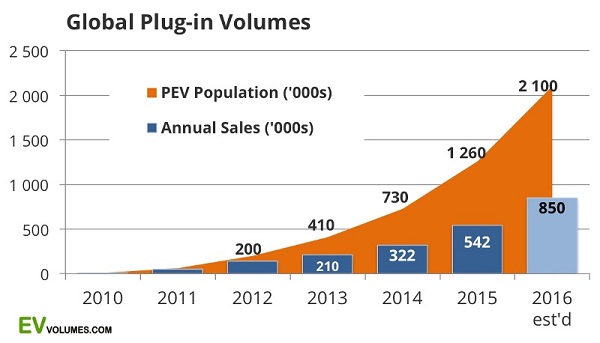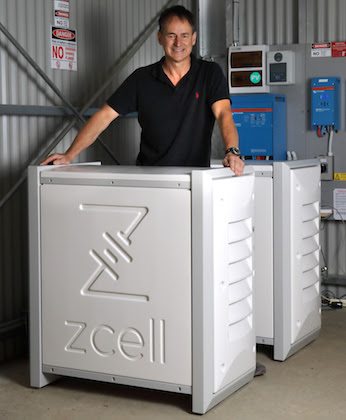1. Electric car revolution may drive oil ‘investor death spiral’
Bloomberg is warning that the multi-trillion-dollar ‘big crash’ in oil investments could start as soon as 2023. However, the smart money is bound to move earlier. Here’s the progress of electric car sales:

Joe Romm also asks Which will be the first country to ban fuel-burning cars: Norway, Germany, India?
His money is on Norway, where this year a remarkable one in three new passenger cars sold was electric. Other countries are making plans to go all-electric by 2030 or earlier.
2. Solar incentives hit $5,168
Solar Market’s recent add tells us that the government incentive to install solar goes up and down depending on how many people are installing?
When there are a lot of people installing solar, the incentive drops. When there are few, it rises. And it depends on the location of your installation.
To be honest I don’t know anything much about it. We’ve decided to stay where we are, if we can, for the next 10 years, so I should find out!
3. Redflow ZCell installed at off-grid property
- Redflow said on Tuesday that the off-grid solution, comprising a 6kW rooftop solar array and two ZCell batteries totalling 20kWh of storage capacity, had been installed at a 100-hectare Willunga property owned by Alan Noble – the engineering director for Google Australia and New Zealand.
Here’s the happy man:

Grid electricity was available at one corner of the property and solar plus batteries was seen as cheaper and more flexible.
4. Voters favour Labor’s renewable energy target
Essential research asked the following question:
- The Labor Party is committed to a target of 50% renewable energy by 2030. An independent report has said this policy would require about $48 billion of new private sector (not Government) investment in large-scale renewable energy production such as solar and wind farms. Do you approve or disapprove of this policy?
Over half (59%) of Australians approve of the target, only 19% disapprove, and 23% don’t know.
Even 48% of LNP voters approved. There were no gender differences, but approval tapered with age.
Pollster Peter Lewis says Sorry, shock jocks, but the public isn’t buying into a renewable energy panic.
5. Trees and plants reached ‘peak carbon’ 10 years ago
As CO2 concentrations in the atmosphere have increased, plants have soaked more of the stuff up. It was always known that this capacity would peak, possibly around 2030.
Now it has been found that ‘peak plant carbon’ came in 2006. Plants have gone on a diet, and the difference is about equivalent to a year’s worth of human-produced emissions from China.
That was a study in published in Weather, by James C. Curran and Samuel A. Curran.
Another study specific to Californian grasslands undercuts the favorite climate myth ‘more CO2 is good for plants’ finding that higher levels of CO2 than today (400 ppm) did not significantly change plant growth, while higher temperatures had a negative effect. The study was restricted to specific species in a specific place.
More to come
In tidying up for the new computer I find I have a backlog of items suitable for CC. So expect more in the next little while, unless politics distracts me!

